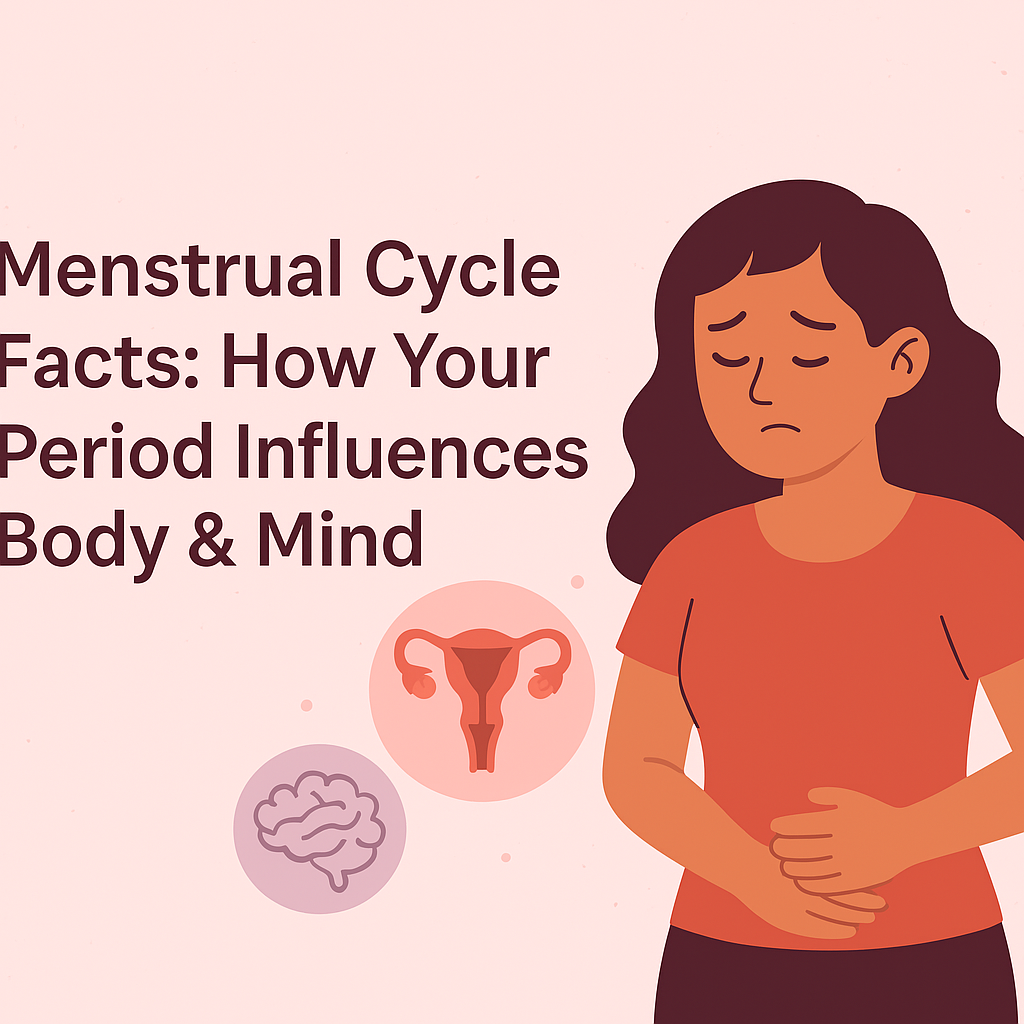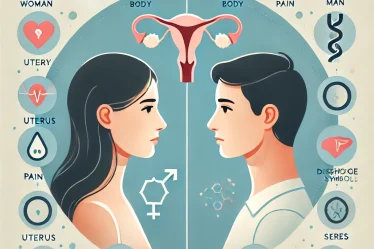
The menstrual cycle is more than just a monthly occurrence—it’s a complex process that affects both your body and mind. From hormonal shifts to physical and emotional changes, your period influences everything from energy levels to mood. Understanding these effects can help you take better control of your health and well-being.
In this article, we’ll break down the different phases of the menstrual cycle, how they impact your body and emotions, and ways to manage symptoms effectively.
1. Understanding the Menstrual Cycle
What is the Menstrual Cycle?
The menstrual cycle is the monthly hormonal process that prepares the female body for pregnancy. On average, it lasts 28 days, though it can range from 21 to 35 days. The cycle is regulated by key hormones, including estrogen, progesterone, follicle-stimulating hormone (FSH), and luteinizing hormone (LH).
Phases of the Menstrual Cycle
Each menstrual cycle consists of four phases, each affecting the body and mind differently:
- Menstrual Phase (Days 1-5): The uterus sheds its lining, leading to bleeding. Many experience cramps, fatigue, and bloating.
- Follicular Phase (Days 6-14): Estrogen levels rise, boosting energy, mood, and cognitive function.
- Ovulation (Day 14-16): The ovary releases an egg, and fertility peaks. Some may notice increased libido and heightened senses.
- Luteal Phase (Days 17-28): Progesterone rises, leading to PMS symptoms such as mood swings, bloating, and food cravings.
2. How Your Period Affects Your Body
Physical Symptoms of the Menstrual Cycle
Your period brings several physical changes, including:
- Cramps & Pain: Caused by prostaglandins, which trigger uterine contractions.
- Digestive Issues: Many experience bloating, diarrhea, or constipation due to hormonal fluctuations.
- Energy Levels: Fatigue is common during menstruation, while ovulation brings a surge in energy.
- Skin Changes: Increased oil production can cause acne breakouts.
3. How Your Period Affects Your Mind
Emotional & Cognitive Changes
Hormonal shifts throughout your cycle impact your mood and mental clarity:
- Mood Swings: Fluctuations in estrogen and progesterone affect serotonin, leading to irritability and emotional ups and downs.
- Anxiety & Depression: PMS can cause heightened anxiety, while severe cases may indicate premenstrual dysphoric disorder (PMDD).
- Cognitive Function: Many report “brain fog” before their period, while others feel mentally sharper during ovulation.
4. Managing the Effects of Your Menstrual Cycle
Diet & Nutrition
Eating the right foods can help balance hormones and ease symptoms:
- Iron-rich foods (spinach, lentils) combat fatigue.
- Healthy fats (avocados, nuts) support hormone production.
- Avoid caffeine & processed foods to reduce bloating and mood swings.
Exercise & Self-Care
- Gentle yoga or stretching can ease cramps.
- Cardio workouts during the follicular phase boost energy.
- Prioritize sleep and stress management to improve mood.
Medical Considerations
- See a doctor if you experience irregular cycles, severe PMS, or unbearable pain.
- Birth control may help regulate cycles and ease symptoms.
Conclusion
Your menstrual cycle is a natural and powerful process that influences both body and mind. By understanding its phases and effects, you can make informed lifestyle choices to improve your well-being.
Track your cycle, prioritize self-care, and consult a doctor if needed!



